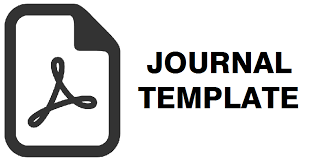An Environmentally Friendly Economy Based on Ibn Arabi's Philosophy of Sufism in Pesantren
A Theoretical Study
DOI:
https://doi.org/10.35719/hrtg.v5i1.144Keywords:
Environmentally Friendly Economy, Ibn Arabi, Philosophy of Sufism, PesantrenAbstract
The study explores the application of Tasawuf and Ibn Arabi philosophy concepts in training to promote an environmentally friendly economy. The background of this research is the importance of integrating spiritual values in tackling the problems of globalization. The goal of this study is to look into how tasawuf philosophy ideas like Wahdat al-Wujud (Unity of Being), Tawhid (Belief in the Essence of God), Trust (Leadership), Zuhud (Inner Fulfillment), Hubb (Love), and Tafakkur (Rejuvenation) can be used in preschool education to help protect the environment. We used primary and secondary literature to examine Ibn Arabi's teachings and their connection to environmentally friendly actions. The results demonstrate the incorporation of the principles of the philosophical tasawuf into the curriculum and daily training practices through ecological education, simple lifestyles, green leadership, and nature contemplation. The discussion suggests that education based on the philosophical tasawuf can form a deep ecological awareness in the centers, making them agents of change capable of applying environmentally friendly economic principles. This research concludes that the concept of tasawuf and the philosopher Ibn Arabi have great potential to help build an environmentally friendly economy in practice. A post-training education that integrates the principles of tasawuf can produce a generation that is not only spiritually worthy but also environmentally responsible, thereby promoting sustainable development that aligns with environmental sustainability principles.
References
Addas, C. (1993). Quest for the Red Sulphur; The Life if Ibn Arabi. The Iskamic Texts Society.
Amini, F. (2018). Integrasi Islam dan Pendidikan Lingkungan Hidup di SMP Negeri 11 Banjarbaru Kalimantan Selatan.
Azra, A. (1994). Jaringan ulama Timur Tengah dan Kepulauan Nusantara abad XVII dan XVIII?: melacak akar-akar pembaruan pemikiran Islam di Indonesia
Azra, A. (2004). The Origins Of Islamic Reformism In Southeast Asia. In Asian Studies Association Of Australia And University Of Hawai’i Press Honolulu (First). University Of Hawai’i Press Honolulu.
BNPB. (2024). Badan Nasional Penanggulangan Bencana. https://bnpb.go.id/berita/antisipasi-dampak-kemarau-bnpb-siapkan-langkah-pencegahan-kekeringan-dan-karhutla-di-jawa-tengah
Bruinessen, M. Van. (1995). Kitab Kuning pesantren dan tarekat?: tradisi-tradisi Islam di Indonesia / Martin Van Bruinessen?; pengantar Abdurrahman Wahid Bandung?: Mizan.
Chittick, W. C. (1989). The Sufi Path of Knowledge: Ibn al-Arabi’s Metaphysics of Imagination. Albany: State University of New York Press.
Chodkiewicz, Michel. (1993). An ocean without shore?: Ibn ?Arabi?, the Book, and the Law. 184.
Cohen-Shacham, E. , W. G. , J. C. , & M. S. (eds). (2016). Nature-based solutions to address global societal challenges. IUCN. https://doi.org/10.2305/IUCN.CH.2016.13.EN
Dhofier, Z. (2011). The Pesantren Tradition: a Study of Kyai’s Life View and His Vision of Indonesia Future.
Geissdoerfer, M., Savaget, P., Bocken, N. M. P., & Hultink, E. J. (2017). The Circular Economy – A new sustainability paradigm? Journal of Cleaner Production, 143, 757–768. https://doi.org/10.1016/J.JCLEPRO.2016.12.048
Hao, Y., Ba, N., Ren, S., & Wu, H. (2021). How does international technology spillover affect China’s carbon emissions? A new perspective through intellectual property protection. Sustainable Production and Consumption, 25, 577–590. https://doi.org/10.1016/J.SPC.2020.12.008
Hidayanti, N., Abidin, Z., & Husna, A. (2018). Implementasi Pendidikan Lingkungan Hidup Sebagai Kurikulum Muatan Lokal Ekopedagogi Dalam Membangun Karakter Siswa Di SDN Lowokwaru 2 Malang. Jurnal Inovasi Dan Teknologi Pembelajaran, 4(2), 106–112.
Ibn al-?Arabi?. (1980). The bezels of wisdom. Paulist Press.
Ibn Arabi, M. (2002). Fusus al-Hikam (R. Austin, Ed.). Suhail Academy.
Ibn Arabi, M. (2012). Futuhat al-Makkiyah (O. Yahya, Ed.). Dar al-Fikr.
IEA. (2020). Energy Technology Perspectives 2020. www.iea.org/t&c/
Kadi, & Khoiriyah, H. (2022). Pembelajaran Tasawuf di Pondok Pesantren Salafiyah Bandar Kidul Kota Kediri. Indonesian Journal of Humanities and Social Sciences, 3(2), 213–228. https://doi.org/10.33367/IJHASS.V3I2.3119
Knysh, A. D. (1999). Ibn ’Arabi in the Later Islamic Tradition: The Making of a Polemical Image In Madieval Islam. State Universty of New York Press.
Madjid, N. (2019). Islam: Doktrin & Peradaban. Gramedia Pustaka Utama.
Maghfiroh, M., Iryani, E., Haerudin, H., Yani, M. T., Zaini, N., & Mahfud, C. (2024). Promoting Green Pesantren: Change, Challenge and Contribution of Nahdlatul Ulama in Indonesia. Nazhruna: Jurnal Pendidikan Islam, 7(2), 409–435. https://doi.org/10.31538/NZH.V7I2.4668
MZ, A. M., Mutawakkil, M. A., & Khoirurroziqin, K. (2022). Tasawuf Falsafi Ibnu Arabi; Telaah Kitab Hakikat Al-Ibadah Karam Amin Abu Bakr. Journal of Islamic Thought and Philosophy, 1(2), 230–256. https://doi.org/10.15642/JITP.2022.1.02.56-79
Nasr, S. H. (1987). Islamic Spirituality; Foundation (S. H. Nars, Ed.). Routledge & Kegan Paul Ltd.
Oecd, & Ocde. (2011). OECD Green Growth Studies?: Towards Green Growth. https://doi.org/10.1787/9789264111318-en
Pudjiastuti, S. R., Iriansyah, H. S., & Yuliwati, Y. (2021). Program Eco-Pesantren Sebagai Model Pendidikan Lingkungan Hidup. Jurnal Abdimas Prakasa Dakara, 1(1), 29–37. https://doi.org/10.37640/JAPD.V1I1.942
Riskawati, R., & Trisakti, U. (2023). Eco-Islamic Boarding School Waste Management: A Systematic Literature Review Approach. Indonesian Journal of Contemporary Multidisciplinary Research, 2(5), 873–896. https://doi.org/10.55927/MODERN.V2I5.5880
The World Bank. (2017). Increasing Long-term Benefits of the Sustainable Use of Marine Resources for Small Island Developing States and Coastal Least Developed Countries BLUE ECONOMY.
Ugin, L. (2018, March). Pengembangan Ekonomi Pondok Pesantren di Jawa Barat. Risalah, Jurnal Pendidikan Dan Studi Islam Vo1. No.4. https://jurnal.faiunwir.ac.id/index.php/Jurnal_Risalah/article/view/48/89
United Nation. (2015). Transforming Our World: The 2030 Agenda For Sustainable Development United Nations United Nations Transforming Our World: The 2030 Agenda For Sustainable Development.
Usman, H. (2013). Manajemen: Teori, Praktik, dan Riset Pendidikan Edisi 4
Wahid, A. (1885). Bunga rampai pesantren: kumpulan tulisan dan karangan Abdurahman Wahid. Jakarta: Dharma Bakti.
Walhi. (2021). Kondisi Lingkungan Hidup di Indonesia di Tengah Isu Pemanasan Global | WALHI. https://www.walhi.or.id/kondisi-lingkungan-hidup-di-indonesia-di-tengah-isu-pemanasan-global
Yulianti, B., Haryanti, M., Juswara, A., Teknik Dirgantara dan Industri, F., & Dirgantara Marsekal Suryadarma, U. (2024). Implementasi Panel Surya Sebagai Sumber Listrik Tambahan Pada Pondok Pesantren Nurul Muta’allimin Depok. Jurnal Bakti Dirgantara, 1(1), 31–38. https://doi.org/10.35968/9G47MX43
ZWIA. (2018). Zero Waste Definition - Zero Waste International Alliance. https://zwia.org/zero-waste-definition/
Downloads
Published
How to Cite
Issue
Section
License
Copyright (c) 2025 heritage

This work is licensed under a Creative Commons Attribution-ShareAlike 4.0 International License.





